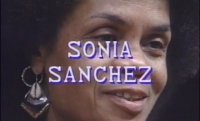Whether you are polishing a short piece or developing a full-length manuscript, there are several exciting writing contests accepting submissions into early May. These contests include financial support and a residency opportunity for a nonfiction writer working on a manuscript about the desert. All offer a cash prize of $1,000 or more and close on May 1, May 3, or May 5.
Atlanta Review International Poetry Contest: A prize of $1,000 and publication in Atlanta Review is given annually for a single poem. All entries are considered for publication. Deadline: May 1. Entry fee: $15.
Australian Book Review Elizabeth Jolley Short Story Prize: A prize of AUD $6,000 (approximately $4,681) is given annually for a story. A second-place prize of AUD $4,000 (approximately $3,121) and a third-place prize of AUD $2,500 (approximately $1,951) are also given. The winners will all be published in Australian Book Review. Gregory Day, Melinda Harvey, and Elizabeth Tan will judge. Deadline: May 3. Entry fee: AUD $25 (approximately $20).
Bristol Short Story Prize: A prize of £1,000 (approximately $1,390) and publication in Volume 14 of the Bristol Short Story Prize Anthology is given annually for a short story. Irene Baldoni, Tom Robinson, and Mahsuda Snaith will judge. Deadline: May 5. Entry fee: £9 (approximately $13).
Georgia Review Loraine Williams Poetry Prize: A prize of $1,500 and publication in Georgia Review is given annually for a single poem. Arthur Sze will judge. All entries are considered for publication. Deadline: May 1. Entry fee: $15 entry fee (no fee for current subscribers).
High Desert Museum Waterston Desert Writing Prize: A prize of $2,500 and a two-week residency at the PLAYA artists and scientists’ retreat in Summer Lake, Oregon, is given annually for a nonfiction work-in-progress that “recognizes the vital role deserts play worldwide in the ecosystem and the human narrative, with the desert as both subject and setting.” The winner will also be provided with travel and lodging to attend a reception and awards ceremony at the High Desert Museum in Bend, Oregon, in September. Deadline: May 1. Entry fee: none.
Leapfrog Press Fiction Contest: A prize of $1,000 and publication by Leapfrog Press is given annually for a short story collection, novel, or novella. Ann Hood will judge. Deadline: May 3. Entry fee: $35.
University of Nebraska Press Backwaters Prize: A prize of $2,000, publication by University of Nebraska Press, and 20 author copies is given annually for a poetry collection. An honorable mention prize of $1,000 and publication by University of Nebraska Press will also be given. Huascar Medina will judge. Deadline: May 1. Entry fee: $30.
Wick Poetry Center Stan and Tom Wick Poetry Prize: A prize of $2,500 and publication by Kent State University Press is given annually for a debut poetry collection. The winner is also invited to teach a weeklong writing workshop at Kent State University and give a reading with the judge. Tracy K. Smith will judge. Deadline: May 1. Entry fee: $30.
Visit the contest websites for complete guidelines, and check out the Grants & Awards database and Submission Calendar for more contests in poetry, fiction, and creative nonfiction.











